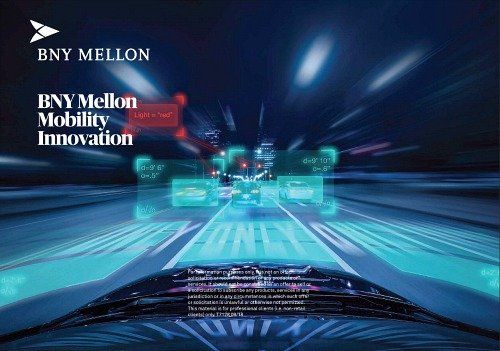The future rollout of 5G services across global cities has the potential to transform transport and urban infrastructure deployment, and revolutionising interactions between people and technology.
«The last transition we had in the market was from 3G service to 4G, which was about increasing the speed of online communication,» says Matthew Griffin – a senior research analyst at BNY Mellon – ahead of the impending rollout of 5G.
Next generation mobile internet connectivity promises faster upload and download speeds, wider coverage and more stable connections. A number of countries are actively working towards 5G rollout for late in 2018 or early 2019.
«5G is a more complex cellular technology which will enable completely new types of application, allowing users access to new wireless spectrum that was previously unusable with earlier technologies,» says Griffin.
Virtual Generation
According to Griffin, the improved ‹latency› or responsiveness of 5G will allow it to enable next generation applications such as advanced virtual reality, autonomous cars and traffic systems. He believes 5G should prove more resilient than earlier generation digital transmission systems. It certainly seems set to have a transformational impact on urban life in the decade ahead, as do the Artificial Intelligence (AI) interfaces it employs.
Mobility Innovation
A key technological advancement is Mobility Innovation, the disruptive, transformational shift toward how we use, power and control all means of mobility, and holds the potential to transform connectivity and transport.With urban centres facing growing volume and transport pressures, disruptive innovations such as autonomous electric cars and ridesharing could ultimately help lower carbon emissions, improve safety and reshape the way we live and travel.
George Saffaye, global investment strategist at BNY Mellon, outlines some key industry shifts:
- 1. OEMs are shifting through the gears: traditional automakers have nearly all woken up to the fact that the future is electric.
- 2. A supply/demand imbalance: one important facet of the mobility theme is its tendency to unleash new demand for select commodities.
- 3. It’s all about the data: the proliferation both of sensors and vehicle connectivity will likely have profound implications for the growth of data infrastructure in coming years.
- 4. Its’s not just automakers that have woken up to the potential of smart mobility: governments and regulators have too.
- 5. A safer world: As vehicles become more connected and as the number of sensors on individual vehicles proliferates the chances are that roads will become safer too.
China is now leading the world in terms of new electric vehicle (EV) sales, a development that has largely been politically driven, says Barry Mills, senior research analyst at BNY Mellon. Last year, 579,000 EVs were sold in China while American customers bought less than half that at 198,350 EVs. (1)
Profound Implications
In addition, the proliferation both of sensors and vehicle connectivity will likely have profound implications for the growth of data infrastructure in coming years. Saffaye says the opportunities in areas such as data management, semiconductors, cloud computing and next generation 5G low-latency/high-bandwidth communications are significant.
The benefits of automation are going to have to be weighed against what individuals give up in terms of potential security or security threats. Either way, be it from remote-controlled autonomous vehicles to smart medical services, 5G looks set to have a transformational impact on urban life in the decade ahead.
(1) Forbes.com: «Electric Car Sales Are Surging in China», 1 June 2018.
IMPORTANT INFORMATION: For informational purposes only. This document is personal and confidential to, and is for the exclusive use of Finnews and professional financial intermediaries (the «Recipient»). The Recipient shall not issue, circulate, distribute, publish, reproduce or cause to be issued, circulated, distributed, published or reproduced (whether in whole or in part) this document to any other persons without the prior written consent of BNY Mellon Investment Management.












